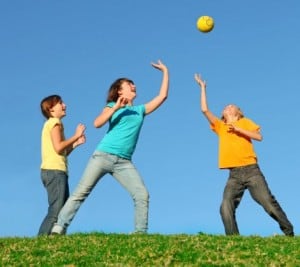
The study comes via the ongoing Stavanger Project, which is monitoring over 1,000 children aged 2 to 10 in Norwegian kindergartens and schools (most Norwegians begin kindergarten at age one). The researchers correlated the children’s mathematical skills and motor functions, gathering data from structured observations of children aged 9 to 24 months. To assess motor skills, the researchers looked at skills like putting on clothes, doing jigsaw puzzles, and throwing and catching a ball. For math skills, they evaluated whether children could sort shapes and other objects, use numerals, and tell the difference between big and small objects.
Strong motor skills and strong mathematical skills had a positive correlation. Children with the best motor skills were more mathematically advanced in all of the measures the researchers used. Children with the weakest motor skills also had the weakest mathematical skills. There was a large discrepancy between the strongest and weakest motor and mathematical skills.
It is not clear if this relationship persists as children age. The researchers also are not sure what causes the correlation between math and motor skills.
“It is important to facilitate play-based activities where children can develop in several areas at the same time … [T]hese skills are also important with regard to development and learning. The earlier this foundation is in place, the better it is for the child. Our findings mean that children with poor motor skills should be observed more closely for poor mathematical skills,” stated study author Elin Reikarås, associate professor of the Norwegian Reading Center at the University of Stavanger.
This research is published in the European Journal of Early Childhood Education.
Previous news in motor skills:



 © 2025 Unyte Health US Inc.
© 2025 Unyte Health US Inc.